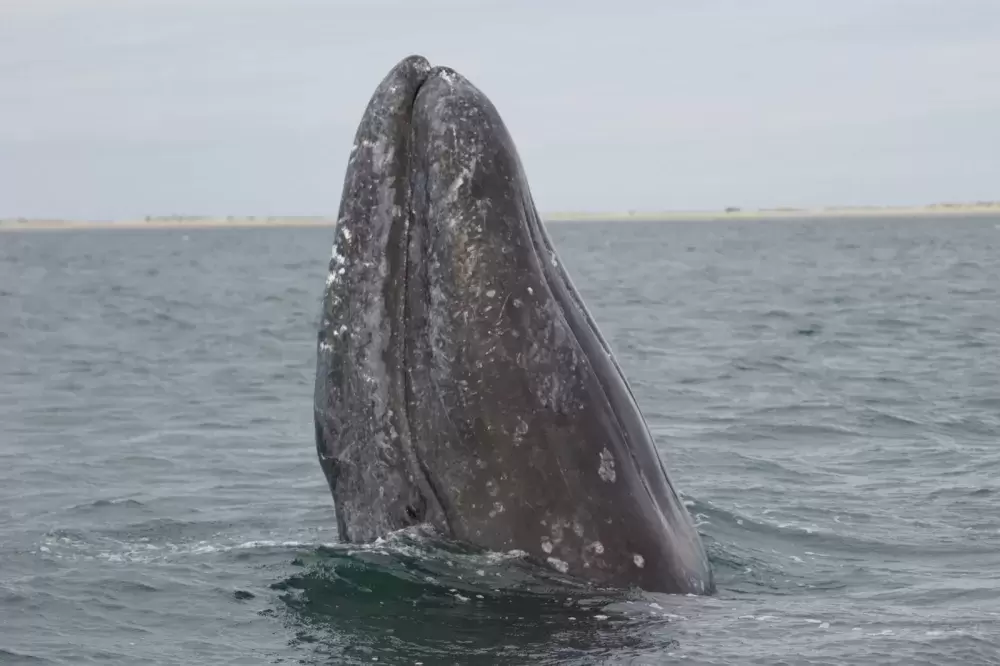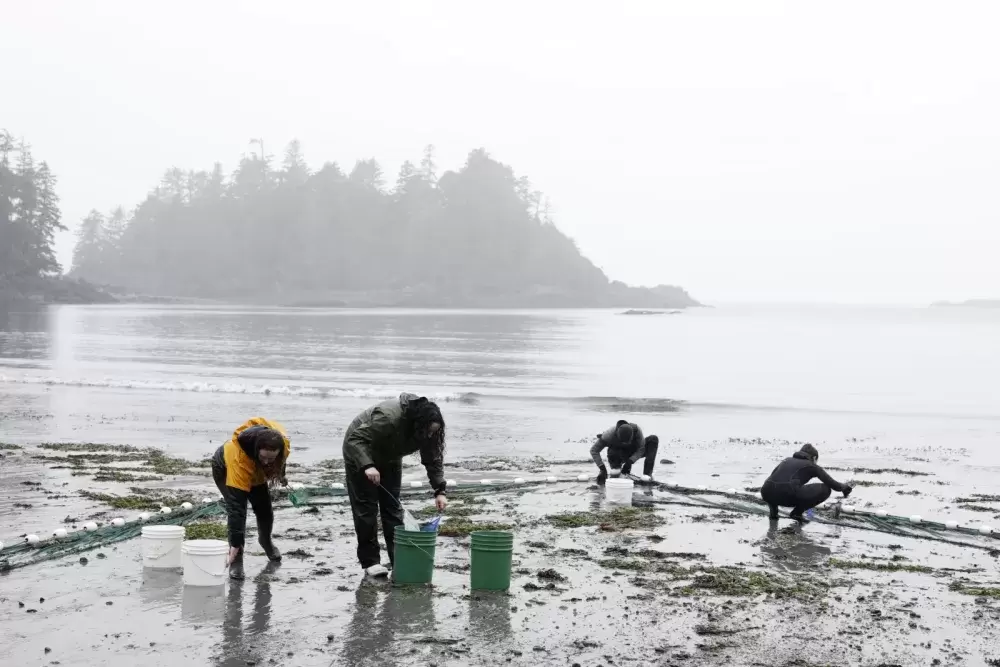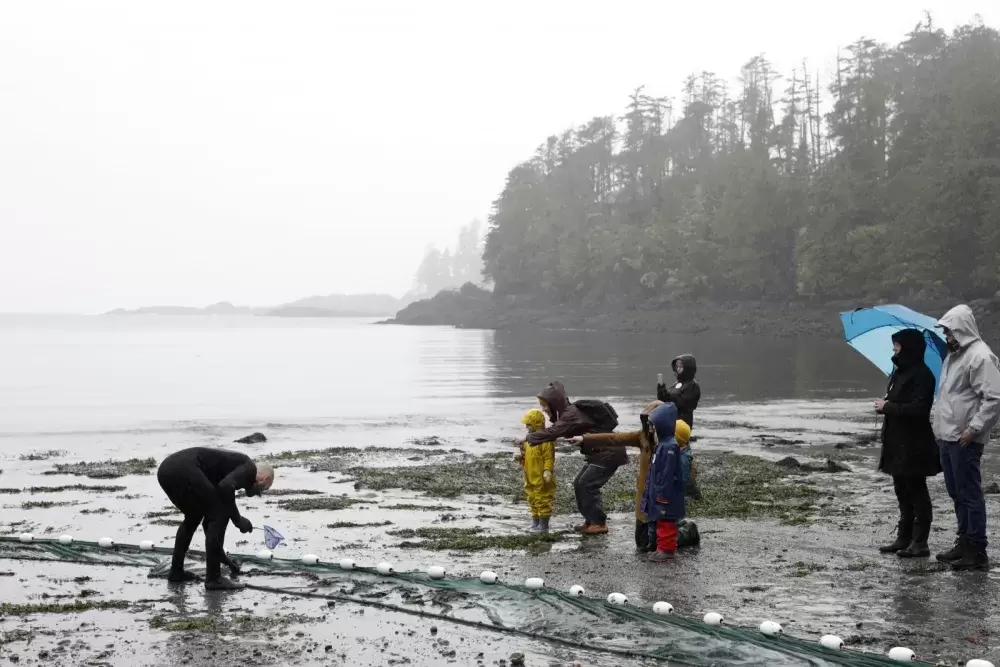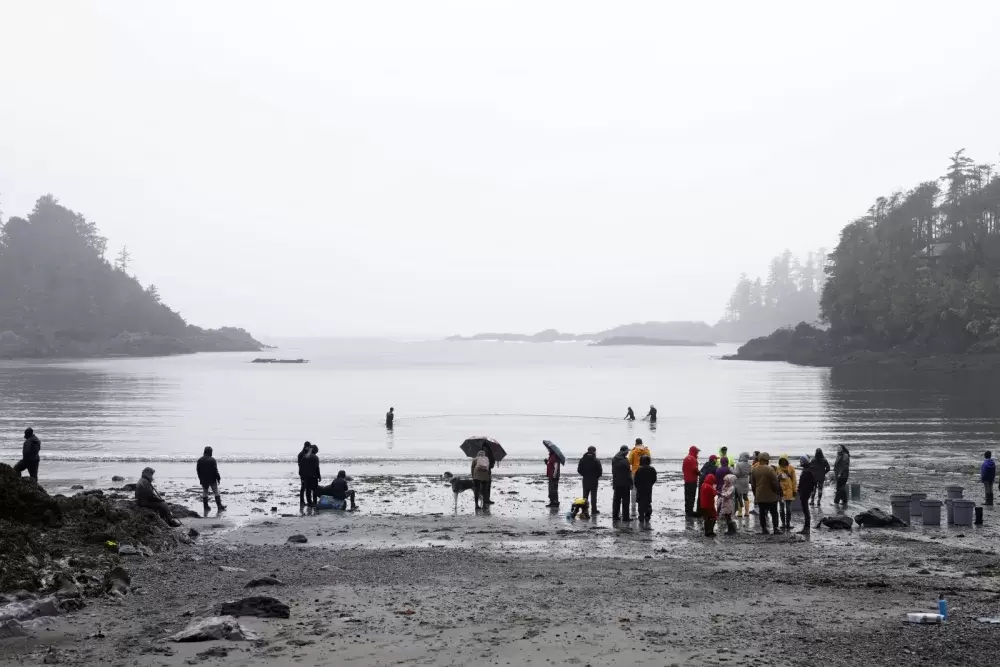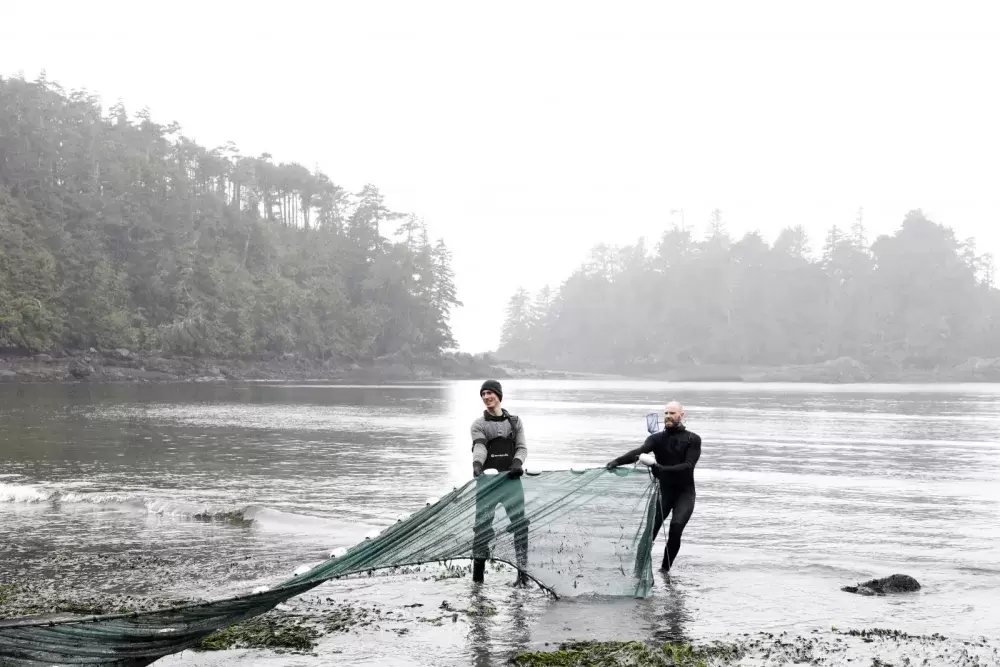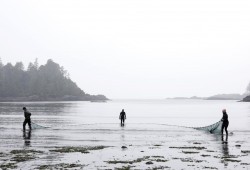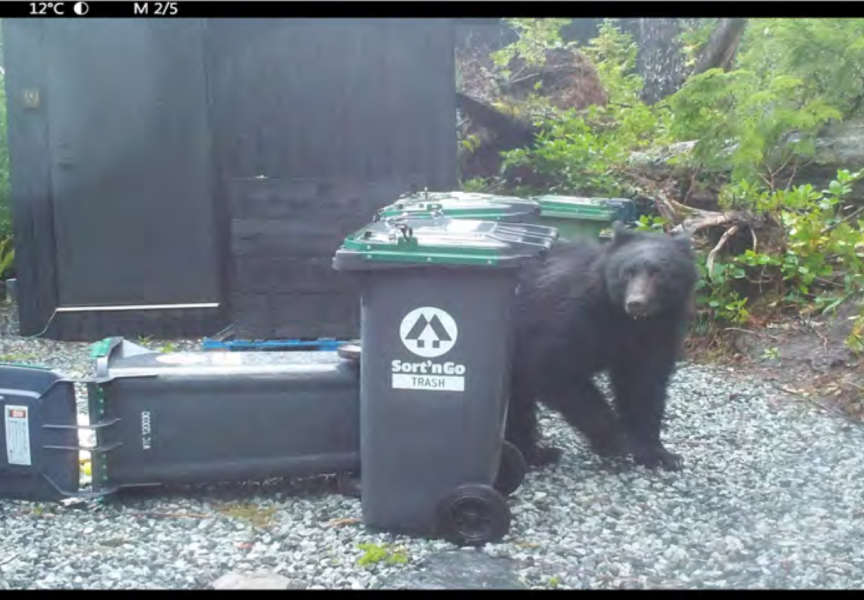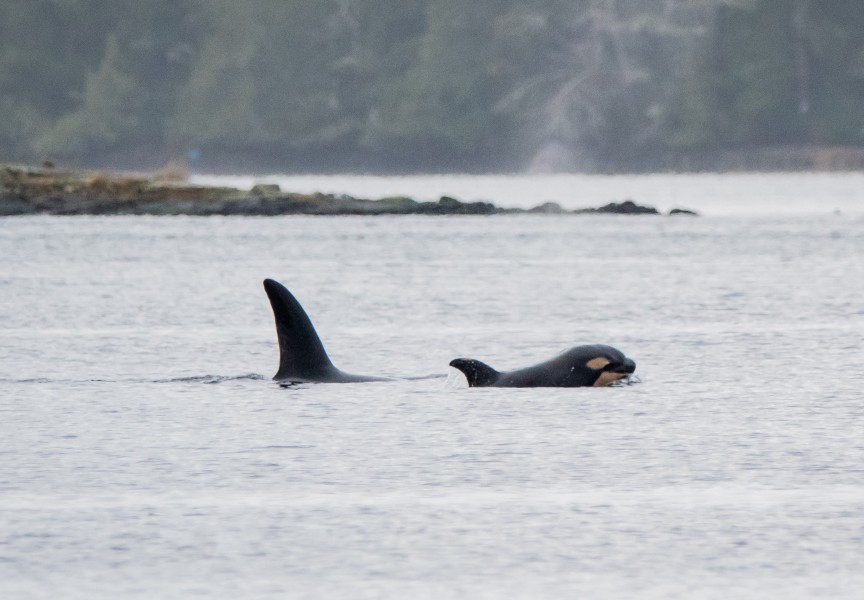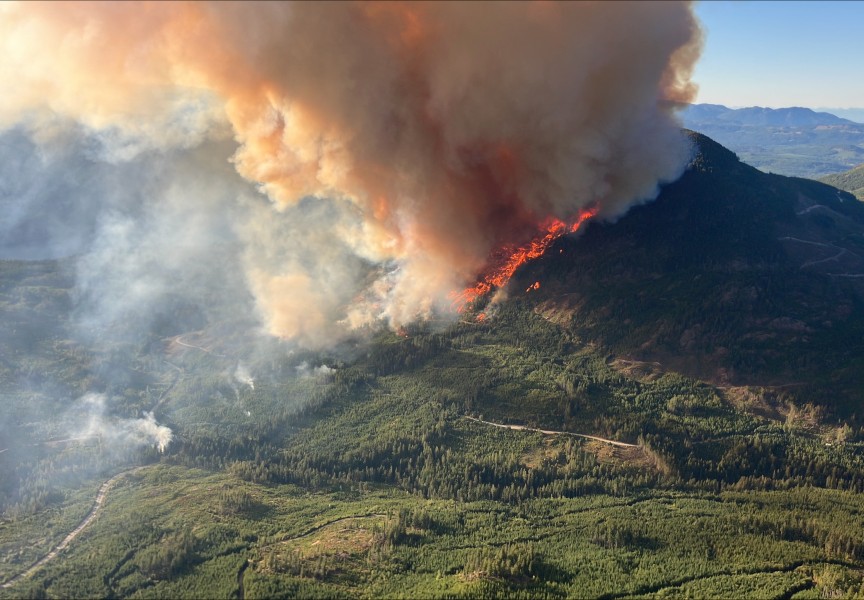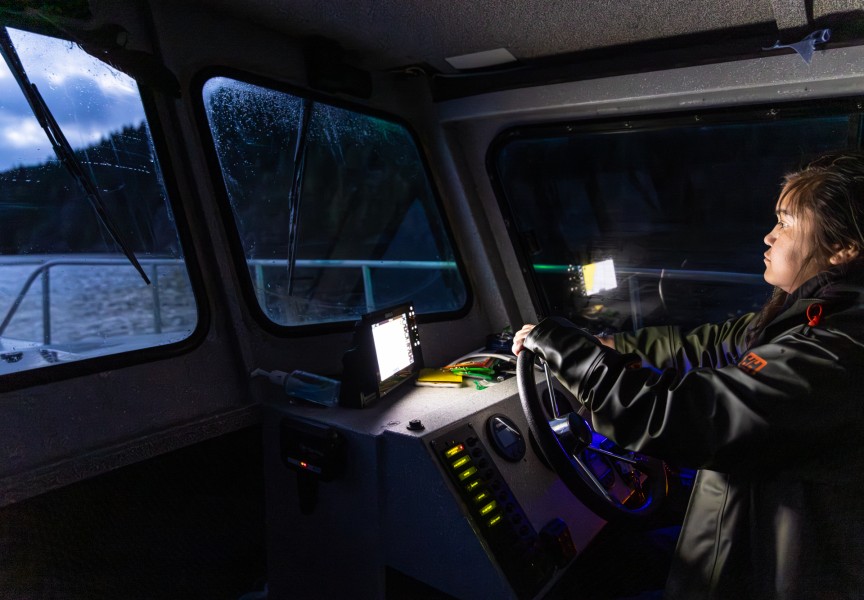Almost every aspect of Nuu-chah-nulth life was enriched through whaling, said Huu-ay-aht Hereditary Whaling Chief Tom Mexsis Happynook.
“It strengthened our community’s economic structure by providing very valuable products to sell, trade, and barter,” he said. “It strengthened our relationships with other communities because it brought people from all around the Pacific Northwest, which often resulted in intertribal relationships and marriages … and finally, it strengthened our people physically and mentally because of the nutritional value of the whale.”
Hereditary whaling chiefs would prepare for a whale hunt for up to nine months before the species’ annual migration from Mexico to the Arctic. It involved fasting, bathing, praying, as well as secret rituals and sacred ceremonies that were performed in harmony with the moon’s rhythms in caves and pools, Happynook described.
Happynook comes from a long line of whaling chiefs. Both his father and grandfather participated in his family’s last whale hunt in 1928 at Chap-is, Huu-ay-aht’s old summer village site on Diana Island.
“I feel very proud of my family's whale heritage and will soon hand my hereditary seat and treasures to my son, Tommy,” he said.
While traditional hunts are no longer held, whales continue to be celebrated on the west coast every year through the Pacific Rim Whale Festival.
The festival was born 34 years ago when a group of concerned citizens came together to raise awareness about the then-endangered grey whale.
For centuries, grey whales were commercially hunted for their oil and it wasn’t until a year after the International Whaling Commission was formed in 1946 that they became protected.
Festival coordinator Sarah Watt said grey whale populations have since rebounded, but new threats have emerged.
Boat traffic, pollution, climate change and entanglement in discarded fishing gear, continue to threaten the species, she said.
More recently, the USA’s National Oceanic and Atmospheric Administration Fisheries declared a spike in whale strandings along the west coast as an Unusual Mortality Event.
Since the phenomena began in 2019, over 500 grey whales have been stranded along their migratory route between Mexico and Alaska, according to the NOAA Fisheries.
While the underlying cause remains unknown, Watt said that climate change and shifting weather patterns in the Arctic could be impacting their food.
“Even though the festival is in its 34th year, it's still just as important to be raising awareness for grey whales and the ecosystem,” she said.
In 2019, the NOAA Fisheries said the North Pacific grey whale population was around 27,000. That number dropped to an estimated 20,580 whales in 2021, based on a new population assessment by the NOAA Fisheries.
They aren’t the statistics Watt said she hoped to see, but they emphasize the need to “celebrate the grey whale migration and the ecosystem as a whole to make people more aware.”
“We hope to make people feel more connected to nature through our educational, arts, and cultural events,” she said.
For most of her life, Watt said grey whales only existed to her through books and movies. That changed when she moved to Canada from England four years ago and saw one in-person for the first time.
“They were almost like this otherworldly species to me – they’re these huge mammals,” she said. “I think that’s part of the fascination.”
As part of this year’s whale festival programming, Jamie's Whaling Station partnered with the Huu-ay-aht First Nations to offer a tour to Bamfield, with whale watching along the way. In Bamfield, participants were given a guided tour of the traditional Huu-ay-aht village site of Kiix̣in by Wish Key.
Combining whale sightseeing with Indigenous cultural tours is “really important because they’re both so intricately connected,” said Watt.
The Ucluelet Aquarium staff also participated in the festival by carefully dragging a seine net along the ocean floor in search of sea creatures for the aquarium on Terrace Beach. It’s the 10th year the aquarium has run the beach seine event, which allows visitors to interact with the surrounding organisms.
“Our local ecosystems can be so vibrant and full of life,” said Ucluelet Aquarium Curator Laura Griffith-Cochrane. “And it's hard for people to know that when they're just looking at the surface of the water.”
While the festival is largely a celebration of whales, Watts said it aims to highlight how everything – from the rainforest to the ocean - is connected.
As Happynook reflects on his family’s relationship to whales, he attributes the species to strengthening their spirituality.
"We know that whaling was an important part of our lives,” said Happynook. “All you have to do is look at the designs in our carvings, paintings and basketry and you will clearly see that the whale truly inspired and influenced our way of life.”

